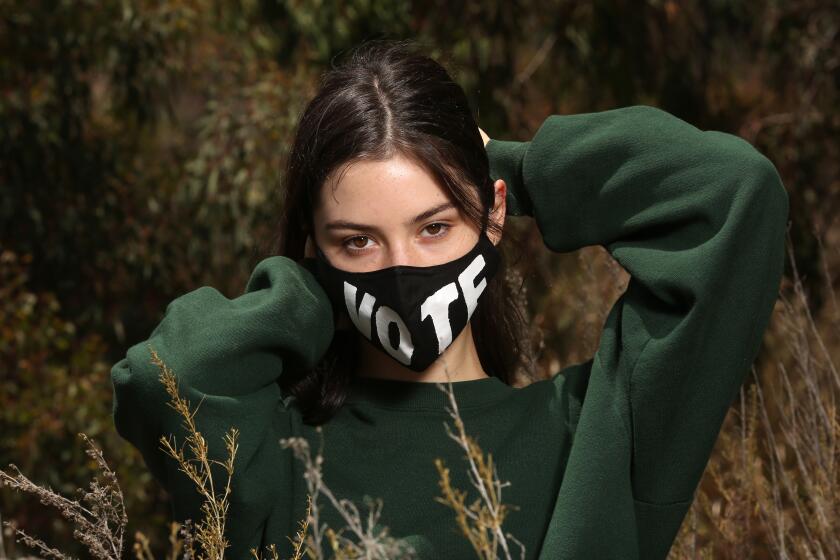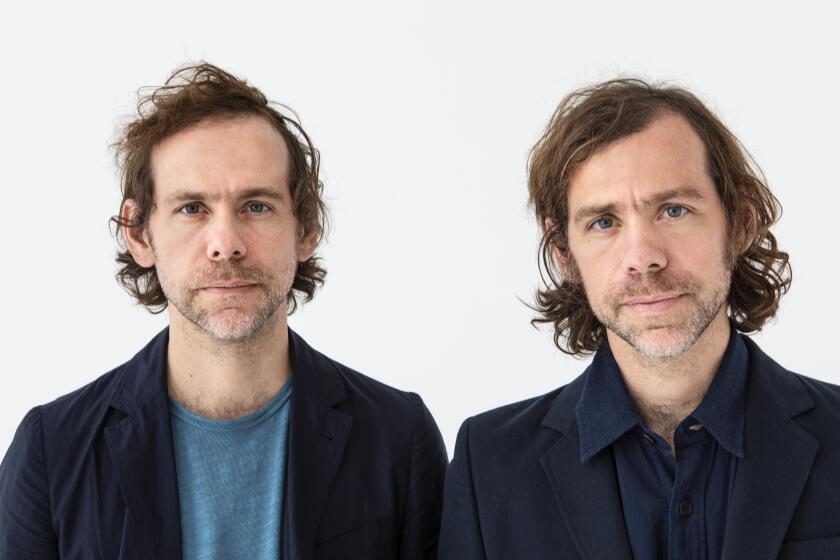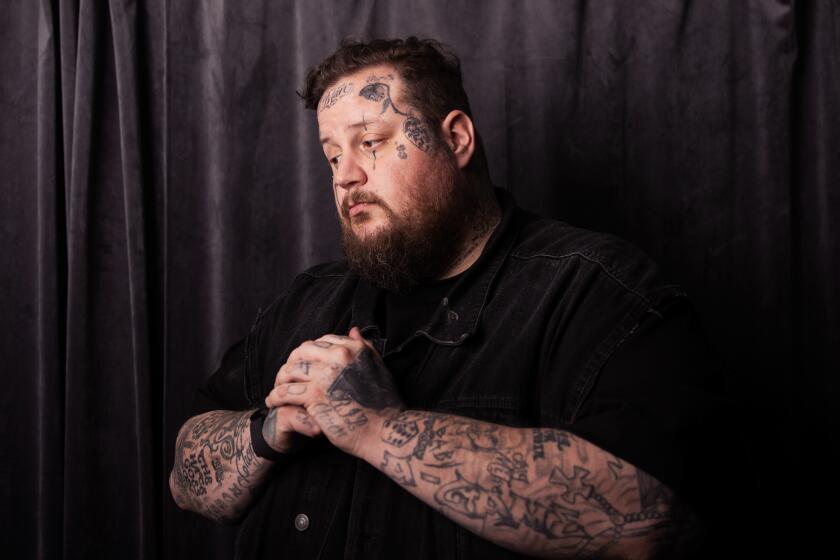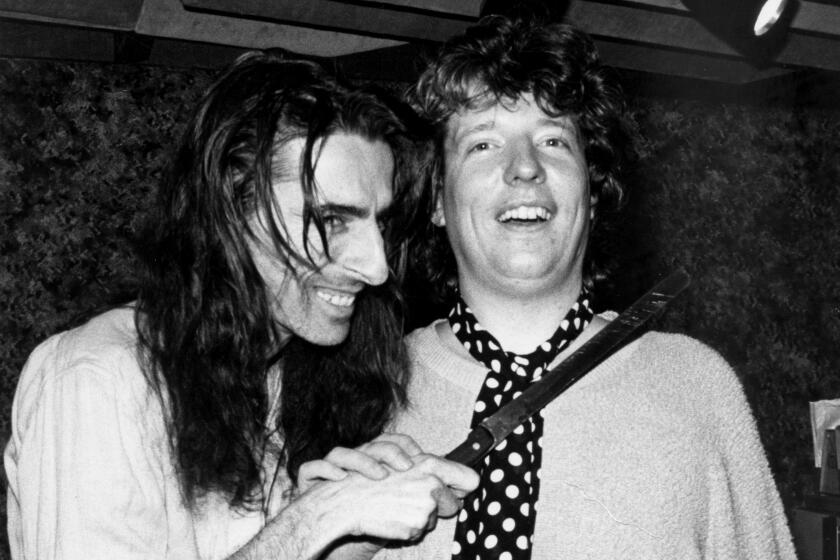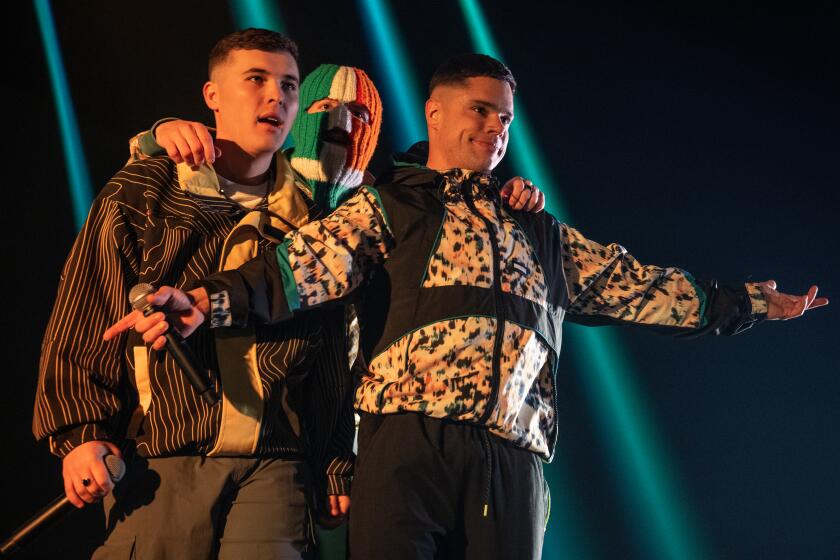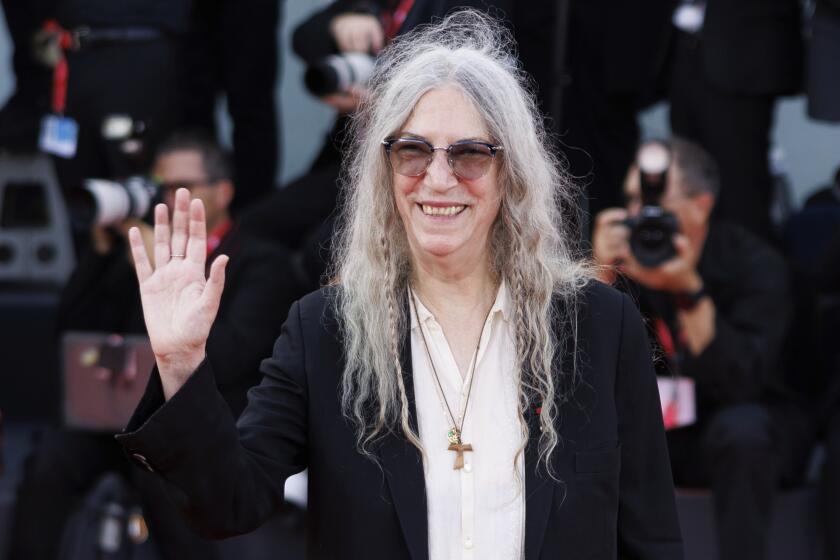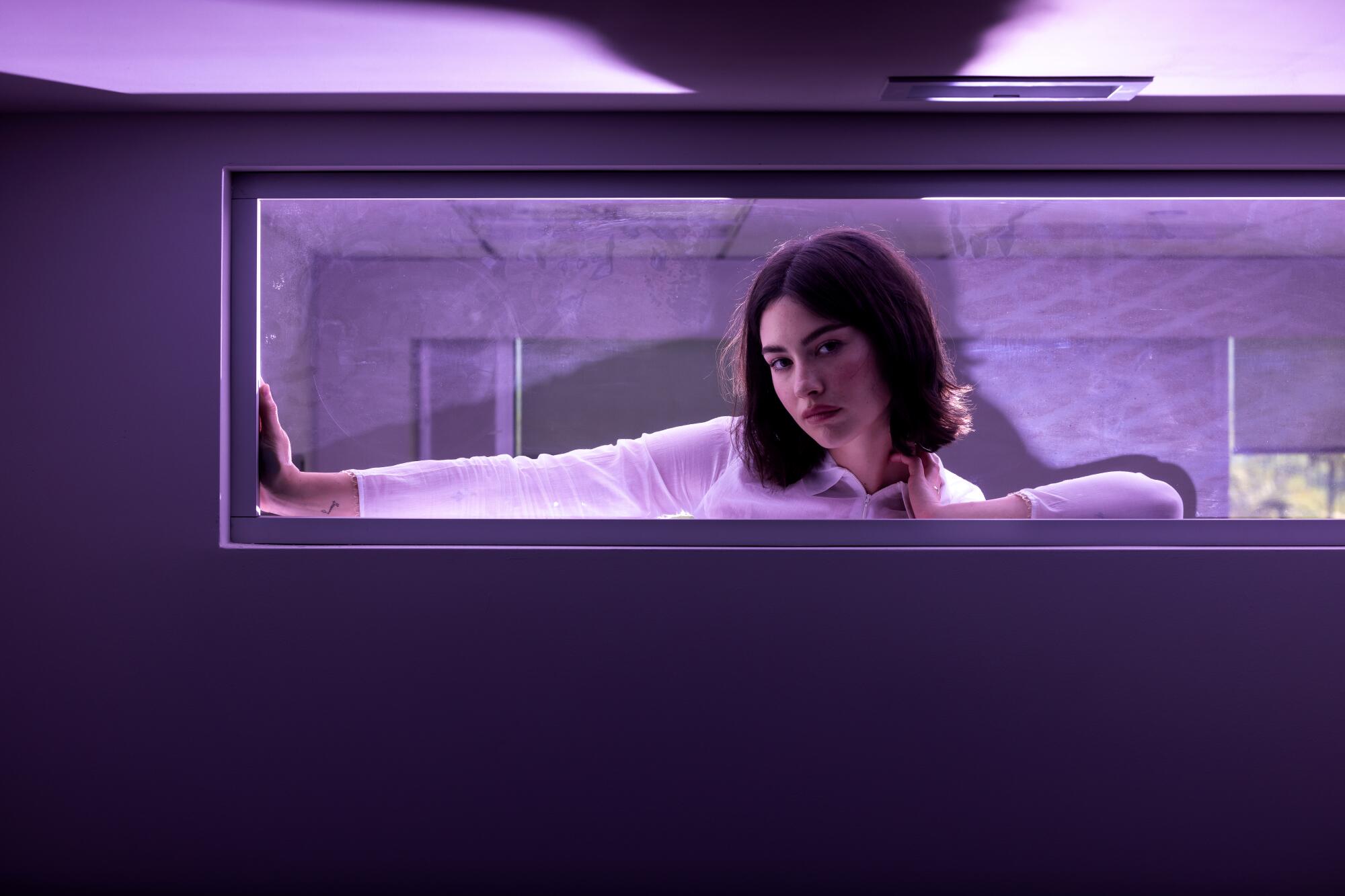
- Share via
Gracie Abrams wishes she could say she was born a performer — that as long as she can remember, all she wanted to do was sing for people.
Instead, she wrote songs alone in her bedroom, terrified of showing them to anyone.
“I was singing as quietly as possible so that no one could hear me,” the 24-year-old singer-songwriter says. This sentiment lingers in her early discography, gentle in its instrumentation and whisperpop lean. But her sophomore album, “The Secret of Us,” released Friday, shows little such restraint.
“This album, it’s louder, because I was touring while I was making it,” she said.
L.A. singer-songwriter Gracie Abrams, daughter of filmmaker J.J., just released her debut EP, “Minor.”
On top of headlining shows for her debut album, “Good Riddance,” the Grammy best new artist nominee last year supported Taylor Swift on the North American leg of her Eras tour — now the highest-grossing concert tour of all time. In those stadiums of 70,000-plus people, Abrams said, emotions were at full volume.
“It’s like a safe space to feel everything very loudly,” she said. “The joy was infectious, and I think that really seeped into this album.”
“The Secret of Us” is a musical sucker punch, setting the moody outpourings of a 20-something woman to spirited guitar strumming and raspy background vocals. Written in large part by Abrams and her longtime friend Audrey Hobert in their shared L.A. apartment, it “embodies all the breathless urgency of spilling your heart out to your closest friend at the end of a whirlwind night,” a press release said.
While her early songwriting is heavily autobiographical, Abrams said she sees “The Secret of Us” as a novel: dramatic, narrative-driven, holding a plurality of experiences.
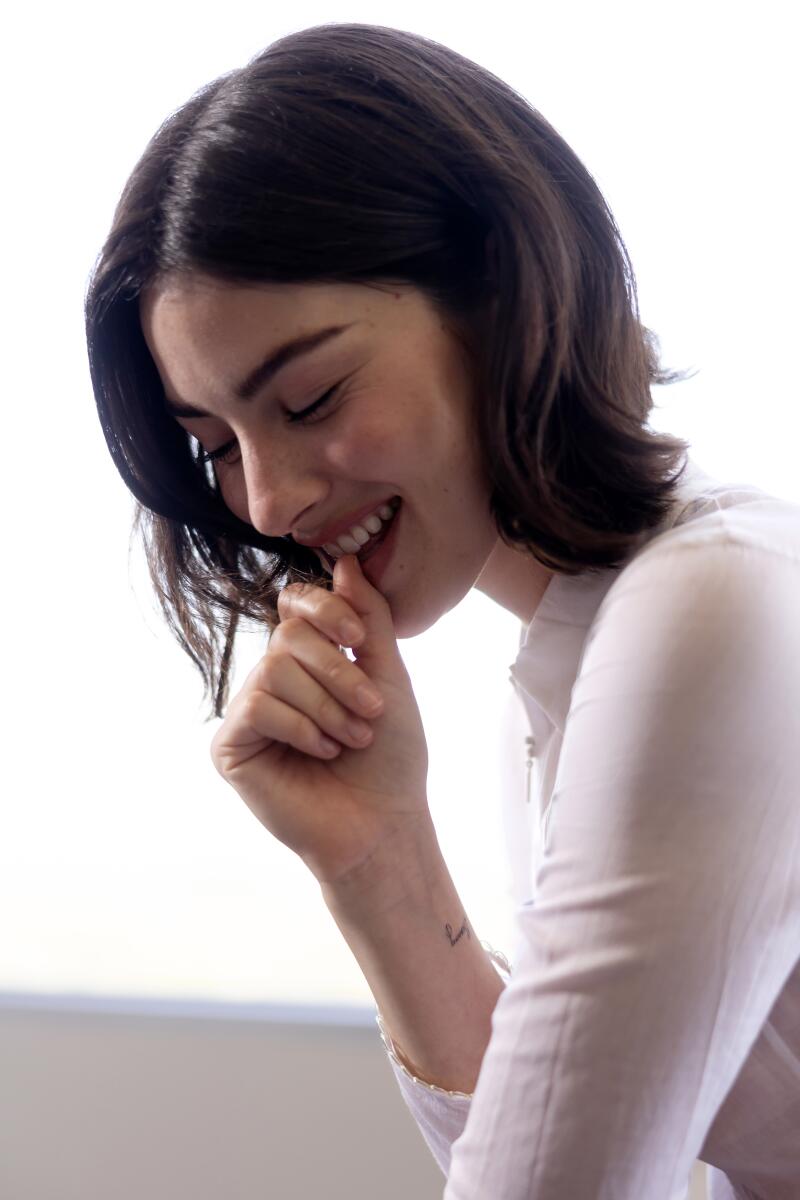
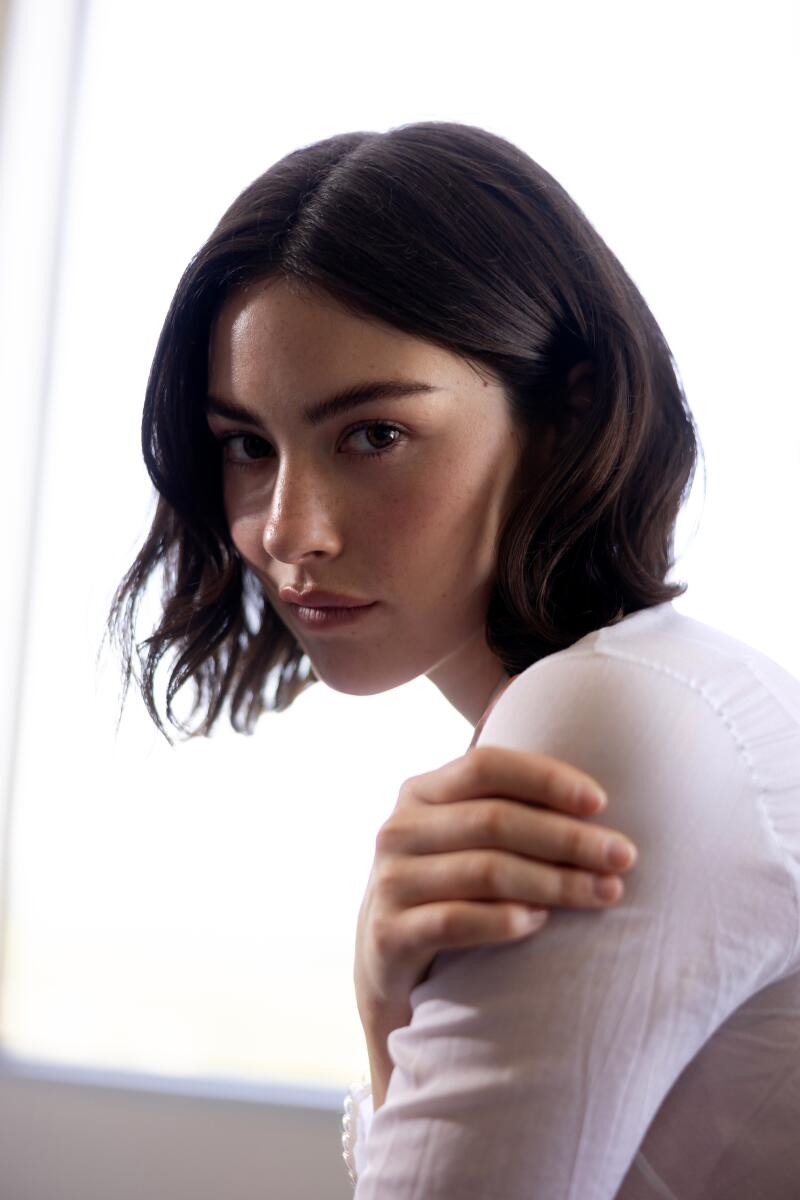
Singer-songwriter Gracie Abrams. (Christina House / Los Angeles Times)
“We totally took seeds of truth and then leaned into the drama of falling in love in your 20s and how physical that feeling is,” Abrams said. They wrote “Risk,” the album’s first single, in August, and in the days that followed, Hobert said she could hardly sleep.
“I’ve just not felt anything like that before in my life,” Hobert said. “Writing together is unlike any drug that exists on the planet.”
If “Risk” was the crack in the dam, then writing the rest of the songs was like catching falling water: “Everything just kind of came in one fluid motion,” Abrams said.
She attributes the speed of the project to her comfort with her collaborators, Hobert and Grammy-winning producer Aaron Dessner, both of whom she considers family.
Brothers Aaron and Bryce Dessner of the band the National tap divergent emotional aspects for the two film scores.
“There’s nothing I wouldn’t tell either of them, so it makes it easy to be completely open when writing,” Abrams said.
“With Taylor [Swift] as well, when we were writing our song, it was like, again, nothing you wouldn’t say,” she added.
Swift collaborated with Abrams on “Us,” the fifth track from “The Secret of Us.” With its cinematic percussion and soaring vocals from both artists, the song is a rightful keeper of the titular lyric: “Wonder if you regret the secret of us.” Its references to “sonnets” and “Babylon” are also fitting for Swift, whose own infamous Track 5s often wax poetic.
Like “Good Riddance” — and Swift’s “folklore” studio sessions — “The Secret of Us” was recorded at Dessner’s Long Pond Studio in upstate New York. But the latter marks the first time Abrams has taken a hands-on role in production.
“When we were at home writing a lot of the songs on just acoustic guitar, I felt like I could hear the whole finished product in my head,” she said. Dessner, who “has no ego about anything,” was predictably supportive, “which is epic, because I know that’s not always the case, especially from producers as established as he is.”
“At no point did Aaron ever make me feel like I was intruding or not experienced enough. He just encouraged me from the moment I walked in,” Hobert echoed.
During visits to Long Pond, Hobert and Abrams burst in on each other’s solo recording sessions and downed tequila shots between takes while Dessner laughed along, filming the duo’s most amusing moments. When he turned in early, they stayed up dancing to the demos.
“This is a different kind of release,” Abrams said, “because I get to celebrate it with my best friend every moment along the way.”
The two shared the stage Monday for a last-minute, invite-only show at the Echo, “Gracie & Audrey.” The event drew around 300 fans, many of whom sported Abrams’ trademark hair bows.
Organizers of the Echo’s monthly all-vinyl ‘60s soul bash Funky Sole said Thursday that this weekend’s installment would be its final night at the club.
On the set list were several tracks from the new album, including “Blowing Smoke,” whose biting line, “If she’s got a pulse she meets your standards now,” drew a handful of gasps. But the gem of the night was the closer that was seven years in the making.
Abrams first posted a 30-second snippet of “Close to You” on Instagram in 2017. The synth-pop track — which some have likened to Lorde’s “Melodrama,” released the same year — quickly became a fan favorite. Since then, Abrams has regularly fielded pleas for a full version.
“I didn’t want to release it for seven years, which is why I didn’t release it for seven years,” she quipped, a grin creeping across her face. “Though, they were right.”

“Close to You” received over 3 million streams in its first day on Spotify, becoming her best-performing single upon release. It’s also her first solo song to debut on the Billboard Hot 100 chart.
It’s strange to see fans rallying so hard for a song she wrote when she was 16, she said, “but I f— love them for caring.”
Evidently, that love is requited. When presales went live for Abrams’ the Secret of Us tour earlier this month, her Sept. 11 show at the Greek Theatre sold out within an hour, so she added a second night — then, a third.
“I knew that we had Night 2 in our back pocket, but not Night 3,” Abrams said. She was shocked when she saw the Ticketmaster queue, which was nearly four times the amphitheater’s capacity.
They could’ve upgraded the venue, “but I don’t want to skip steps in that way,” she said. Plus, for an artist who grew up in L.A., it doesn’t get more magical than the Greek.
She’d play anywhere, though, on the condition that her fans were there to sing back to her.
“As long as they’ll have me, I’ll do this.”
